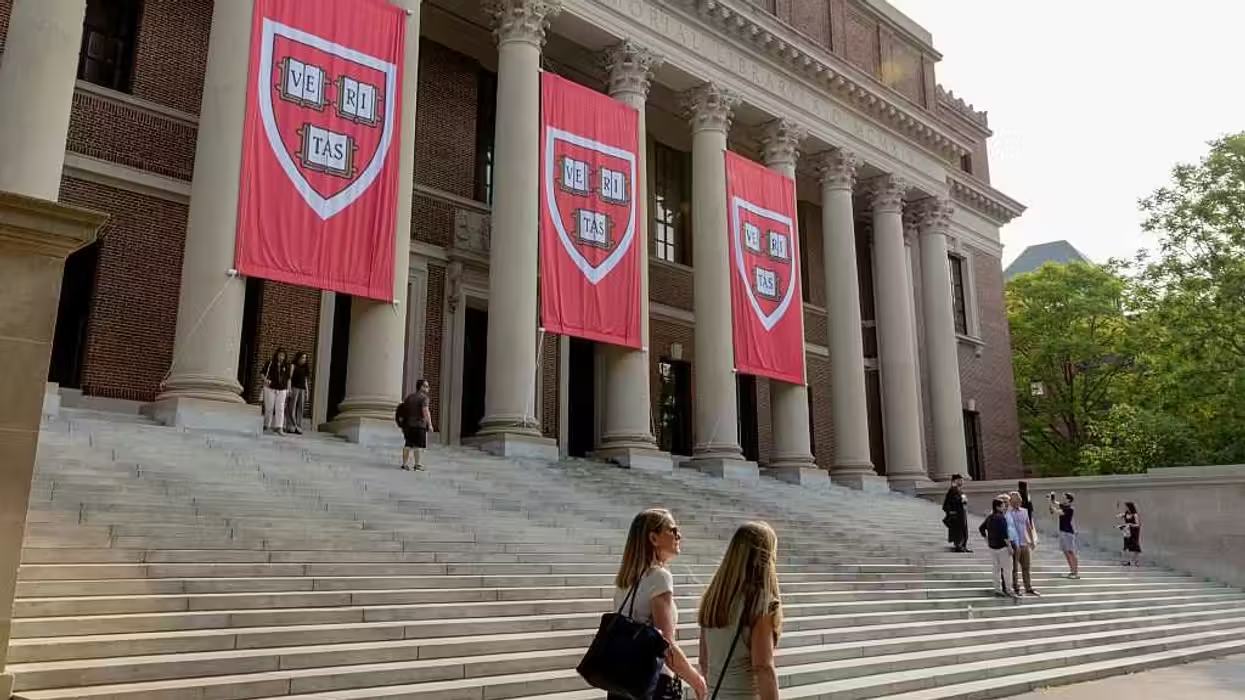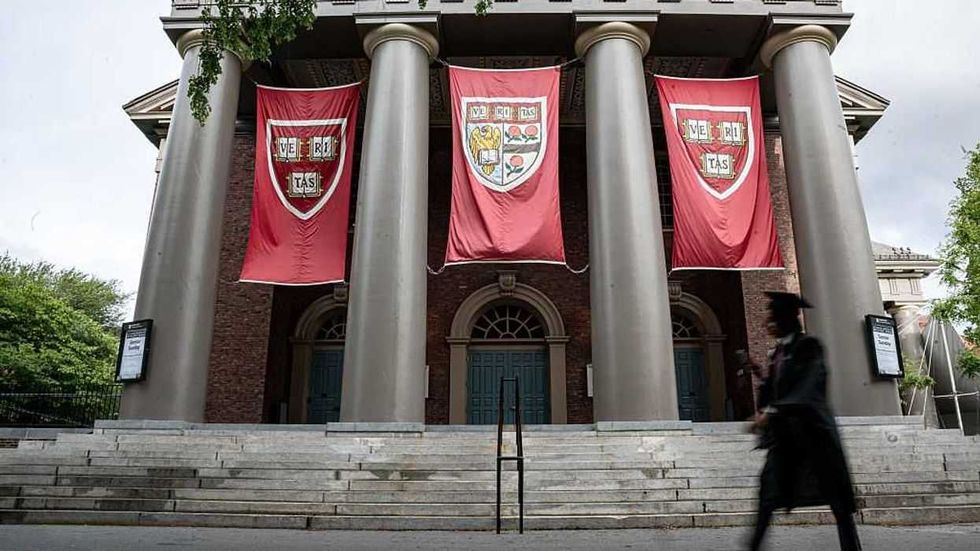
Photographer: Cassandra Klos/Bloomberg via Getty Images

Harvard University is dealing with the fallout of its students' standardization by a low standard.
Harvard University's Office of Undergraduate Education released a 25-page report on Monday revealing that roughly 60% of the grades dished out in undergraduate classes are As. This is apparently not a signal that the students are necessarily better or smarter than past cohorts but rather that Harvard As are now easier to come by.
According to the report, authored by the school's dean of undergraduate education Amanda Claybaugh and reviewed by the Harvard Crimson, the proportion of students receiving A grades since 2015 has risen by 20 percentage points.
'If that standard is raised even more, it's unrealistic to assume that people will enjoy their classes.'
Whereas at the time of graduation, the median grade point average for the class of 2015 was 3.64, it was 3.83 for the class of 2025 — and the Harvard GPA has been an A since the 2016-2017 academic year.
"Nearly all faculty expressed serious concern," wrote Claybaugh. "They perceive there to be a misalignment between the grades awarded and the quality of student work."
Citing responses from faculty and students, the report revealed that the specific functions of grading — motivating students, indicating mastery of subject matter, and separating the wheat from the chaff — are not being fulfilled.
RELATED: Harvard posts deficit of over $110 million as funding feud with Trump continues to sting

"In the view of faculty, grades currently distinguish between work that meets expectations or fails to meet expectations, but beyond that grades don't distinguish much at all," said the report. "'Students know that an 'A' can be awarded,' one faculty member observed, 'for anything from outstanding work to reasonably satisfactory work. It's a farce.'"
Claybaugh acknowledged that grades can serve as a useful and transparent way to "distinguish the strongest student work for the purposes of honors, prizes, and applications to professional and graduate schools." However, since As are now handed out like candy and many students have identical GPAs, prizes and other benefits must now be dispensed on the basis of less objective factors, which "risks introducing bias and inconsistency into the process," suggested the dean.
The report noted further that Harvard University's current grading practices "are not only undermining the functions of grading; they are also damaging the academic culture of the College more generally" by constraining student choice, exacerbating stress, and "hollowing out academics."
Steven McGuire, a fellow at the American Council of Trustees and Alumni, highlighted the admission in the report that Harvard owes much of its current crisis to its coddling of unprepared students.
"For the past decade or so, the College has been exhorting faculty to remember that some students arrive less prepared for college than others, that some are struggling with difficult family situations or other challenges, that many are struggling with imposter syndrome — and nearly all are suffering from stress," said the report.
"Unsure how best to support their students, many have simply become more lenient. Requirements were relaxed, and grades were raised, particularly in the year of remote instruction," continued the report. "This leniency, while well-intentioned, has had pernicious effects."
The new report is hardly the first time the school has suggested that Harvard undergraduate students tend to be coddled, intellectually fragile, ideologically rigid, and slothful.
Citing faculty feedback, Harvard's Classroom Social Compact Committee indicated in a January report that undergraduate students "have rising expectations for high grades, but falling expectations for effort"; often don't attend class; frequently don't do many of the assigned readings; seek out easy courses; and in some cases are "uncomfortable with curricular content that is not aligned with the student's moral framework."
The January report noted further that "some teaching fellows grade too easily because they fear negative student feedback."
Claybaugh's grade inflation report has reportedly prompted complaints and whining this week from students.
Among the dozens of students who objected to the report and its findings was Sophie Chumburidze, who told the Harvard Crimson, "The whole entire day, I was crying."
"I skipped classes on Monday, and I was just sobbing in bed because I felt like I try so hard in my classes, and my grades aren’t even the best," said Chumburidze. "It just felt soul-crushing."
Kayta Aronson told the Crimson that higher standards could adversely impact students' health.
"It makes me rethink my decision to come to the school," said Aronson. "I killed myself all throughout high school to try and get into this school. I was looking forward to being fulfilled by my studies now, rather than being killed by them."
Zahra Rohaninejad suggested that raising standards might sap the enjoyment out of the Harvard experience.
"I can't reach my maximum level of enjoyment just learning the material because I'm so anxious about the midterm, so anxious about the papers, and because I know it's so harshly graded," said Rohaninejad. "If that standard is raised even more, it's unrealistic to assume that people will enjoy their classes."
The student paper indicated the university did not respond to its request for comment.
Like Blaze News? Bypass the censors, sign up for our newsletters, and get stories like this direct to your inbox. Sign up here!